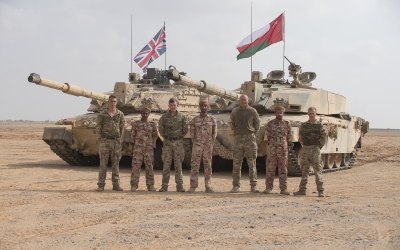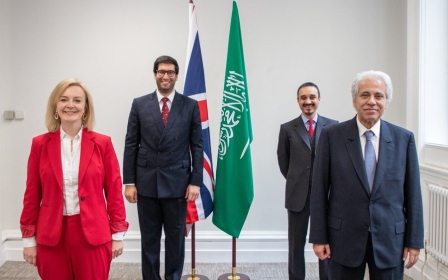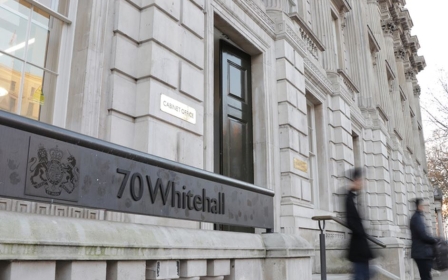UK defence ministry blacklisted website critical of its Middle East policies, finds inquiry
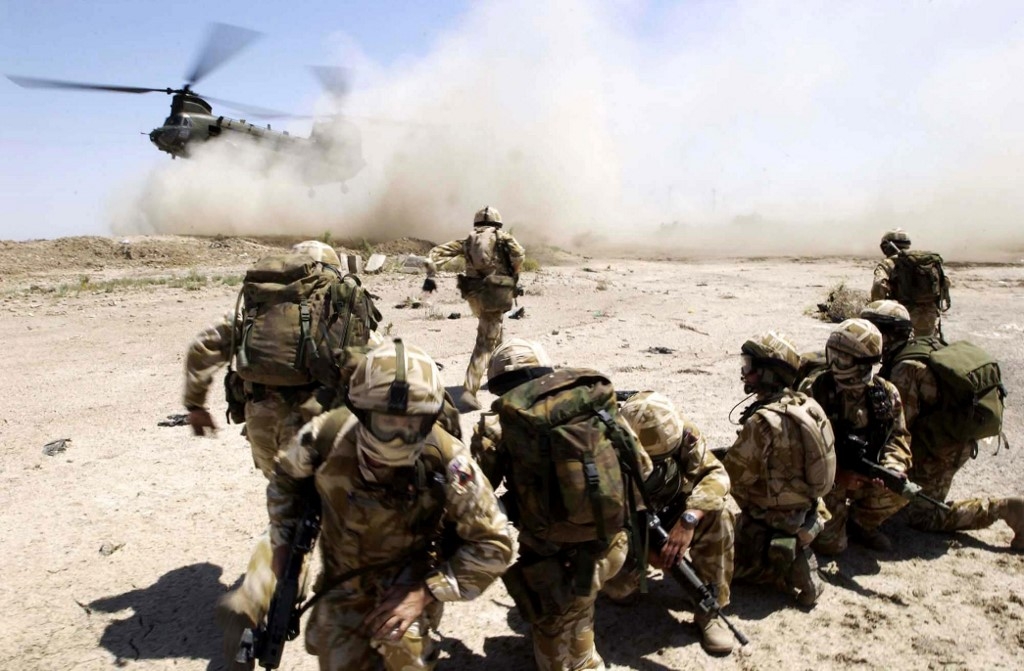
The UK’s defence ministry effectively blacklisted a London-based news website that had been scrutinising the country’s military activities in the Middle East, an official inquiry has confirmed.
According to an official review into the government’s handling of the investigative news website Declassified UK, published on Monday, the Ministry of Defence (MoD) had imposed a blanket ban on talking to the website at the suggestion of a senior British military officer.
'It is clear that Declassified was blacklisted, which is contrary to the way that public officials are required to deal with news organisations'
- Mark Curtis, editor, Declassified UK
The ban was lifted only when civilian government ministers intervened, the review added, explaining that it had been imposed after the website had published a series of articles about UK training for the Saudi-led coalition waging war in Yemen.
Ministers intervened after lawyers representing Declassified warned the MoD that any ban would probably breach the code of conduct under which UK civil servants operate, the report said.
The Council of Europe, the continent’s leading human rights organisation, had also issued an alert warning of a serious breach of media freedom.
New MEE newsletter: Jerusalem Dispatch
Sign up to get the latest insights and analysis on Israel-Palestine, alongside Turkey Unpacked and other MEE newsletters
'Hostile website'
The inquiry was ordered by Ben Wallace, the UK defence secretary, and headed by Tom Kelly, who had been a Downing Street press spokesman when Tony Blair was prime minister. It found that MoD press officers believed their communications director had “sanctioned a blanket ban” on giving any comment to the website.
Kelly’s report said that “with the benefit of hindsight, it is understandable that they reached that conclusion”.
In July 2020, a military officer on loan to the MoD press office, who is not named in the report, had proposed that Declassified be “put on a list of organisations which the department would not engage with, or rarely engage with”.
Rather than “address the potential breach of policy”, the MoD’s communications director agreed that “his department ‘should not waste any time’ on Declassified because they were a hostile website, rather than a proper news organisation”.
Kelly said that he found no evidence that such a list existed.
He added: “While the suggestion asserted that the website’s output was conspiratorial and frequently picked up by foreign media which is hostile to the UK, it did not provide the supporting evidence base necessary for such an analysis nor assess the wider reputational implications of what was being suggested.”
Although the report stops short of saying there was an official policy of blacklisting journalists from Declassified, it found that “the end result was the same: they were not treated in the same way as other media outlets”.
Declassified had discovered it was being treated differently to other media in August, after staff reporter Phil Miller was told by an MoD British army lieutenant colonel working in the MoD press office: “My understanding … is that we no longer deal with your publication.”
Miller was at that point working on a report about a serving British soldier being arrested while protesting in uniform outside Downing Street against the UK’s role in the Yemen war. Other media outlets were provided with an MoD comment on the arrest.
Much of the information in Miller’s earlier reports on the conflict had been supplied by the MoD itself, following requests made under the UK’s Freedom of Information Act.
The MoD’s communications director at the time is not named by the inquiry, but is reported by Declassified to have been Carl Newns, a former deputy head of counter-terrorism at the Foreign Office.
His stance was interpreted by the rest of the press office staff “as a direction not to engage with Declassified”, Kelly’s report says.
They “acted as if there were such a policy” of blacklisting, it adds.
Newns told Kelly that he had only meant his team “should not expend a disproportionate amount of time” answering questions from Declassified since “it had a clearly hostile agenda”.
Ministers' intervention
It was only when ministers intervened that the refusal to engage with Declassified was brought to an end, the inquiry's report says.
Newns reportedly left his post at the MoD last month, and is now at the Cabinet Office as a director in the cross-government National Resilience Communications hub, focusing on Covid-19.
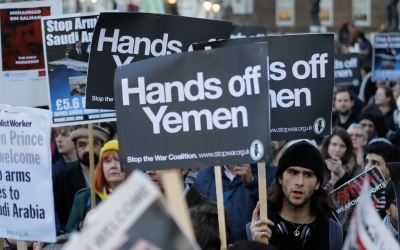
Declassified editor Mark Curtis said: “It is clear that Declassified was blacklisted, which is contrary to the way that public officials are required to deal with news organisations. The MoD should admit it and stop trying to let its most senior media official off the hook.”
Curtis said that rather than being “hostile”, the website was attempting to hold the MoD to account through effective reporting.
“The MoD is used to dealing mainly with compliant journalists who are happy to follow the official line. Declassified is different, and seeks instead to perform a public service by revealing what governments do.”
Middle East Eye delivers independent and unrivalled coverage and analysis of the Middle East, North Africa and beyond. To learn more about republishing this content and the associated fees, please fill out this form. More about MEE can be found here.


